It's nothing new that social media can be noisy and often present a cacophony of ideas and opinions lost in ready-made responses or, often, at offensive and lack concise arguments.
In the gaming universe, these events are as frequent as in other audiovisual entertainment topics such as cinema and have some inherent characteristics of our modern culture: seeking any anecdotal evidence to reinforce arguments and/or to refute counter-arguments that oppose our beliefs and reasoning.
Our modern Agora has failed and will continue to fail: we are not ready to have so many voices, the debate weakens when we need to summarize everything or behave the message to keep the public following until the end or when our main concern is to be accepted by the algorithms. Everything becomes X or Y, everything is good or bad, thoughts stop addressing the plurality of the collective to focus on the portion of people with whom you want to communicate and, preferably, gain recognition and engagement.
Consequently, we began to debate topics which are often answered with an easy “because yes” or a “why not?” - and the most recent of them revolves around Yasuke one of the playable characters in the new Assassin’s Creed Shadows, revealed last Wednesday (15).
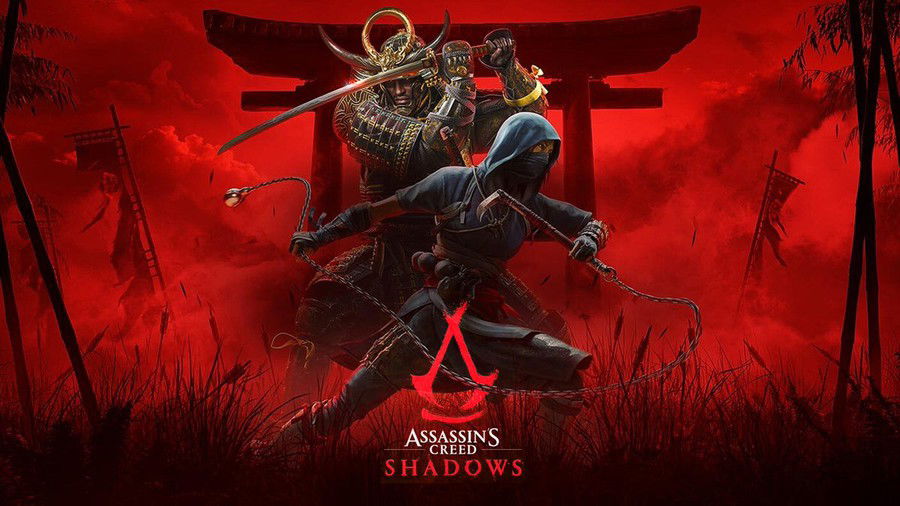
While a vocal portion may disagree, having Yasuke as a protagonist in the new Assassin's Creed is the best choice that Ubisoft could make for a title set in feudal Japan, whether from a marketing point of view aiming at the controversy social media created, in the narrative and historical characteristics of the series and even in the quality of experience for the player, having a black Samurai as one of the playable characters makes perfect sense.
Brief reminder: Assassin’s Creed is, after all, fiction
Let's get straight to the point: Assassin's Creed is a work of fiction that, at its roots, uses certain events, eras and some real characters to tell its story and unfold its larger plot - one about an ancient war between Assassins and Templars and their domain under the Pieces of Eden, artifacts left by an ancient race, all equipped with supernatural powers such as controlling humanity.
Since Origins, the series has taken on a more mythological aspect, a narrative shift that better fits with the open-world aspects Ubisoft has experimented with three of its most recent main titles. And yet, not even the first games in the series were completely faithful to the events and technologies of the eras represented - the most symbolic example is the functional war tank in one of the AC Brotherhood quests whose story took place between 1499 and 1507 while, in reality, the first tank was only created in 1915.
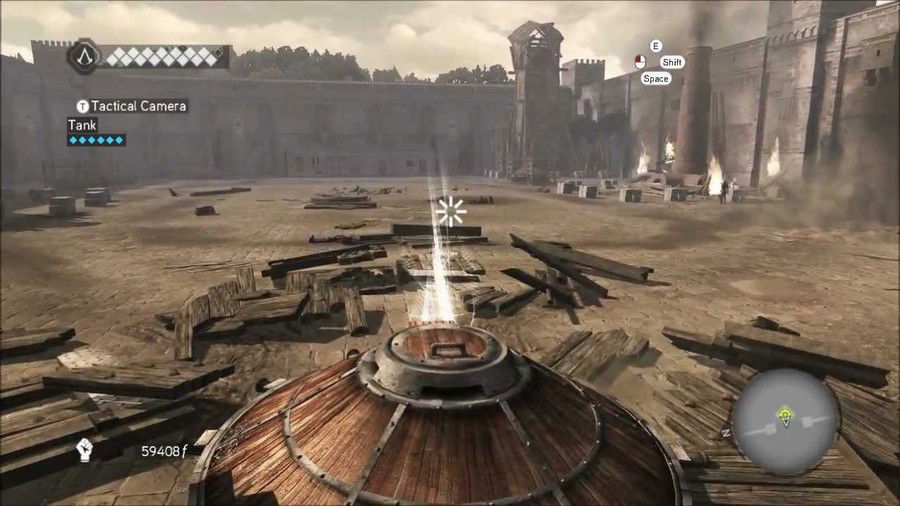
In other words, while some game concepts are, in fact, inspired by real events, much of the series' narrative has always been fictional and one of the biggest criticisms about Assassin's Creed recently has been the lack of fidelity with more “realistic” events because, despite representing the strong belief in gods and religions at their times, there is nothing “real” about facing gods and mythological legends as bosses - these elements were always relegated to the larger plot of the series with the Isu.
These conflicts between reality and fantasy in its games, however, shouldn't be a debate when we elaborate on Yasuke because he was very real.
And who exactly was Yasuke?
Yasuke was the first black samurai in Japanese history and served as part of Oda Nabunaga's personal guard, a feudal lord who had unified half of Japan during the Sengoku era.
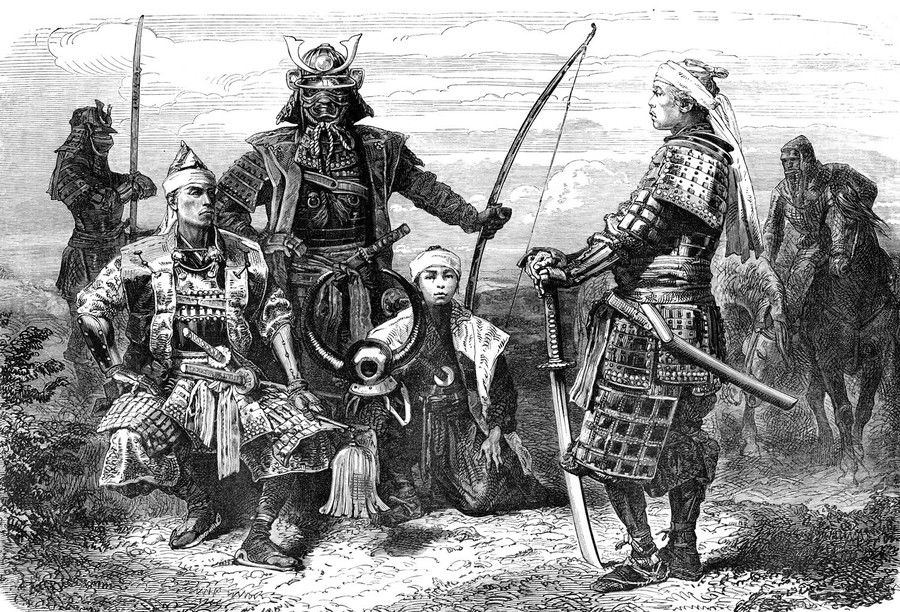
According to historians, little is known about his original name, but it is believed that Yasuke was born in Mozambique, Ethiopia or Nigeria and was possibly trafficked as a slave, but was a free man when he became a mercenary who served as a bodyguard for Alessandro Valignano, an Italian missionary who planned to travel from India to Japan during the civil war in the country, caused by the fall of the Ashikaga shogunate.
Both arrived in 1579 and would meet Oda Nabunaga in 1581. Oda was fascinated by the physical stature, strength, discipline, intelligence and the color of Alessandro's bodyguard's skin, which he believed was ink painting his body.
When he discovered that this was actually his skin, Nabunaga threw a welcoming party for Yasuke, who may have received training under his tutelage to join his personal guard of 30 to 50 soldiers, where he was the only foreigner.
Under Nabunaga's command, Yasuke participated in the last steps of the feudal lord's unification process, which took a bitter turn when he was betrayed by one of his generals, Akechi Mitsuhide, in 1582, who surrounded them in Kyoto with 13,000 soldiers.
Cornered, Nabunaga committed seppoku, the act of cutting one's own abdomen to die by their own hands, maintaining their honor. Yasuke was responsible for taking the bodies of Oda and his lover, Mori Ranmaru, away from Mitsuhide and, thus, preventing him from legitimizing his power over the army.
Little is known about Yasuke's whereabouts after these events. The last records about him indicate his presence in a Jesuit mission carried out by Akechi Mitsuhide, who was killed a few weeks later by Toyotomi Hideoshi in the Battle of Yamazaki. Hideoshi became the country's next great unifier in 1590.
Betrayal and Freedom as recurring themes
And now that we are properly introduced to the protagonist, it is impossible not to notice how several elements of him fit into Assassin's Creed's overall narrative and how his known history and the events that follow them are, naturally, some of the crucial elements the series seeks to address in its games.
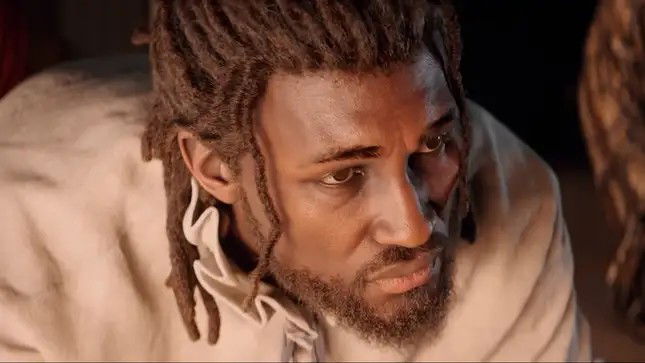
The most striking of them is betrayal. Since Assassin's Creed II and the fateful moment when Ezio Auditore sees his family being executed, this theme has appeared in several games in the series in some way, and we can speculate that Yasuke's story will eventually lead him to Akechi Mitsuhide's and Nobunaga's death.
Although Oda is considered a ruthless leader and this is demonstrated from the perspective of the game's other protagonist, Naoe, we cannot neglect the concept of loyalty that exists in the Samurai code and what it means for Yasuke, a possible former slave who ascended as the bodyguard of the most important man in Japan, who chose him personally - Whether out of gratitude or a sense of duty, it is likely that we will see him have some appreciation for his lord, and consequently, seek revenge for his death at the hands of Akechi, a possible Templar agent.
This event also fits with another crucial point in Assassin’s Creed stories: Freedom. Several plots in the franchise have already revolved around the struggle of one group against another, especially the conflict between oppressors and oppressed - above all, an act of heroism with which many are familiar and consider the right way to act in the face of injustice.
But freedom is not always just about external conflicts. Yasuke's dialogue with Naoe during the trailer makes it seem like they are both looking for an alternative to changing Japan's course, one that doesn't involve the same shedding of innocent blood that Oda pursued - the liberation of a philosophy, of a concept about how to live and rule.
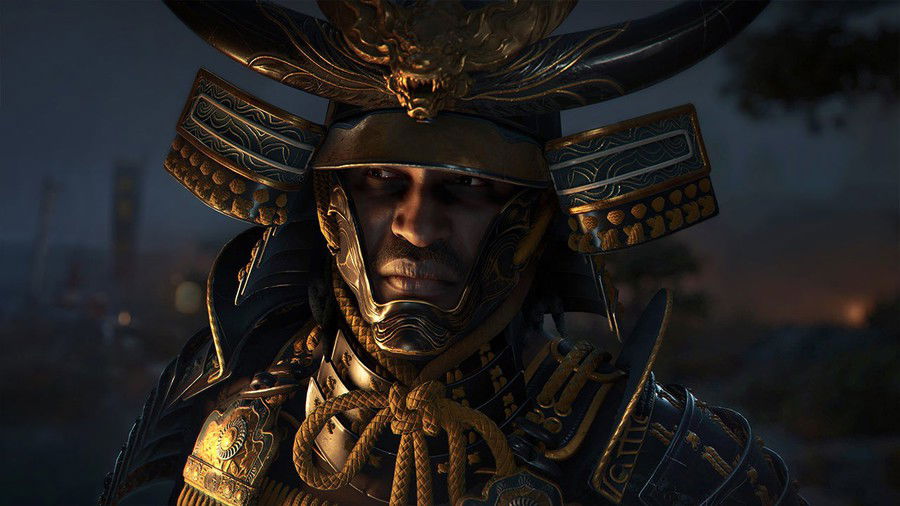
We know from history that the Japanese government's acts of expansion, violence and conquest did not end with Nobunaga: Hideoshi, for example, made advances in the country's economy, but built fortifications to protect his government and had plans to conquer territories from other countries, with two attempted invasions against Korea.
We are left to question what kind of path Yasuke might take. The trailer indicates a loyalty put in check in favor of a better reality for the nation where greed, power and revenge have no control over their lives - but the themes and the way they connect with the character place him in an important spot when we're talking about Assassin's Creed, and it differentiates him from the competition with another big name in console games.
To not live in the Shadows of a Ghost
Since 2020, an Assassin's Creed set in Japan would naturally come with a major obstacle when it comes to leaving its mark on the industry: Ghost of Tsushima, considered to this day as one of the most beautiful games of the generation, has Stealth gameplay that places both in very similar roles in the market - and it's very difficult to compete with the aesthetics of Sucker Punch's title.
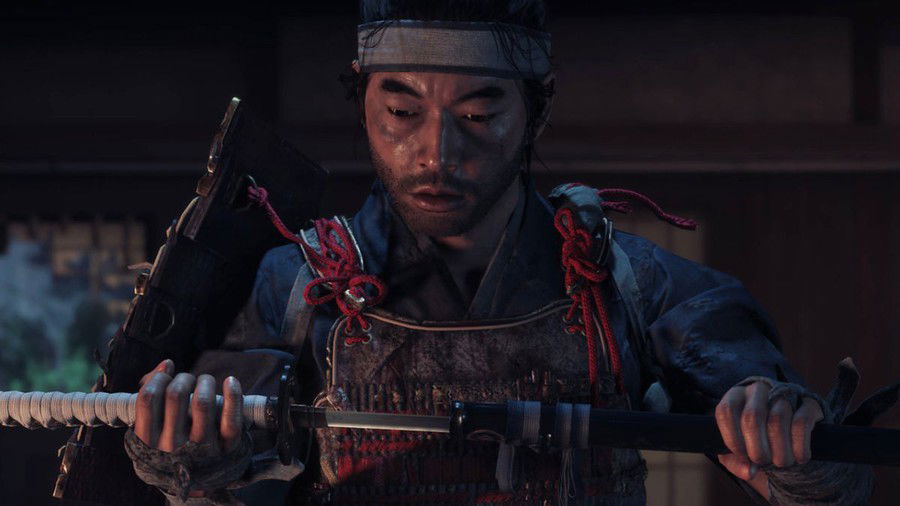
Everything in Ghost of Tsushima is incredible in some way: the look of the maps, its open-world exploration, the combat, the freedom to choose between all-in combat or more stealthy means and the number of resources in the player's hands, in addition to the ability to customize your clothes according to your gameplay preference, places the players in a very privileged space in open world games.
AC Shadows appears to focus on gameplay elements such as the recently revealed Seasons and Weather system, which change the behavior of guards, and the ability to use shadows to the player's advantage to perform Stealth moves with Naoe, or heavier and more direct combat with Yasuke - separating, in two characters, traits we need to plan in detail with Jin Sakai.
In terms of narrative and immersion, Naoe seems to offer that classic experience from the series of walking around with a stealthy character, with a hidden blade in her gloves, who goes unnoticed by guards and other enemies - an experience closer to Brotherhood than to Odyssey.
Yasuke, on the other hand, is a figure who draws attention and should be closer to more recent titles in the franchise. He is a black samurai, it is obvious he draws (or should draw) attention, and the story can be much more intricate in his narrative journey and his resolution while part of Nabunaga's army precisely because of his distinction with the rest of the Japanese people, granting him a huge role in the interlocutor's perspective.
Players like to feel unique
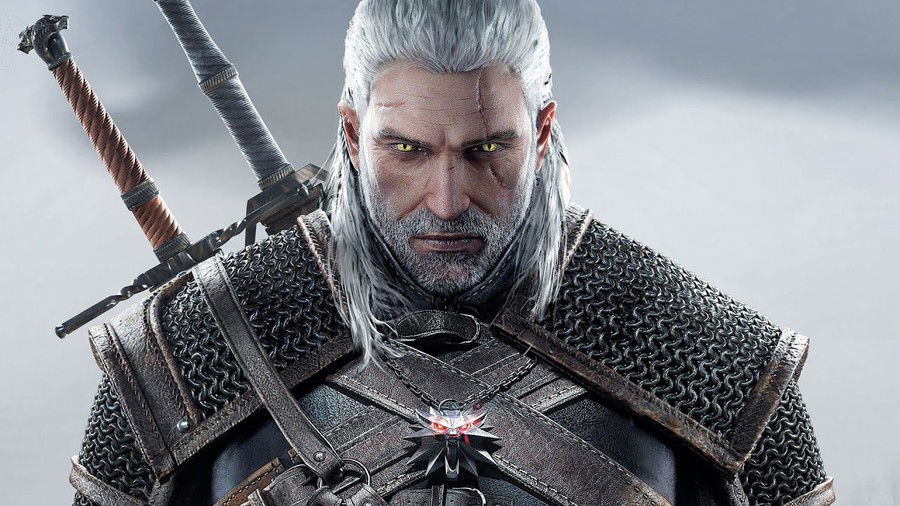
The reason why Geralt of Rivia, with his white hair and yellow eyes in The Witcher, Cloud Strife, with his giant sword and Mako-infused eyes in Final Fantasy VII, or even the playable character from Skyrim, whose appearance is customizable but not changes that they are the Dragonborn, are so successful is because players tend to like feeling that they are the center of the story, a figure distinct from the others both in physical traits and in their role in the greater plot.
Even Ghost of Tsushima, whose setting is very similar, had this characteristic by placing Jin as one of the few surviving samurai on the Island - and later, placing him in the role of the Ghost when samurai became more common around the map and in the cities the player visits, thus leaving him as a "unique" character to the game's universe.
In AC Shadows, Yasuke is this distinctive figure: his skin color, hairstyle, and stature certainly make him stand out among NPCs and most other characters. If his origins and cultural traits are preserved, there will also be distinctions in his behavior and philosophy, placing him in the same role that other highly acclaimed characters have already played and which, in the end, might reward us with a captivating journey.
Having a black and unique hero, inspired by a real person, adds to gaming culture
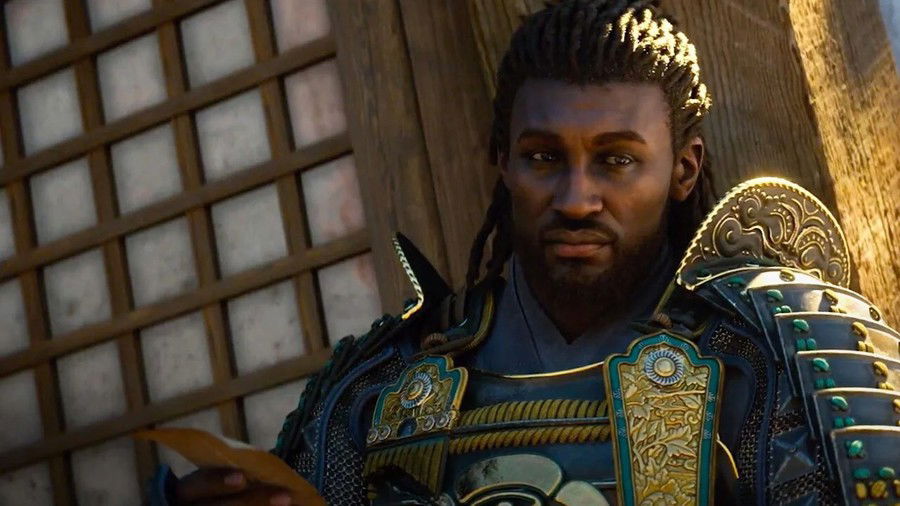
How many have considered the narrative benefits of having Yasuke as a protagonist? This goes well beyond representation, but, yes, representation matters and how many of us have had the experience of being inspired by the actions of figures like Ezio Auditore or any other white hero, or white heroine in Assassin’s Creed?
When we have the opportunity to have, for the first time, a real figure as a playable character in a series known for its mix of historical precedents and fiction, there is no other character in feudal Japan who would make more sense than Yosuke - and just like many were inspired by other protagonists, why not let people, both young and adults, also find that same inspiration with characters they can better identify with? And, mainly, why can't we, here in our space and with our experiences, learn more from black characters too?
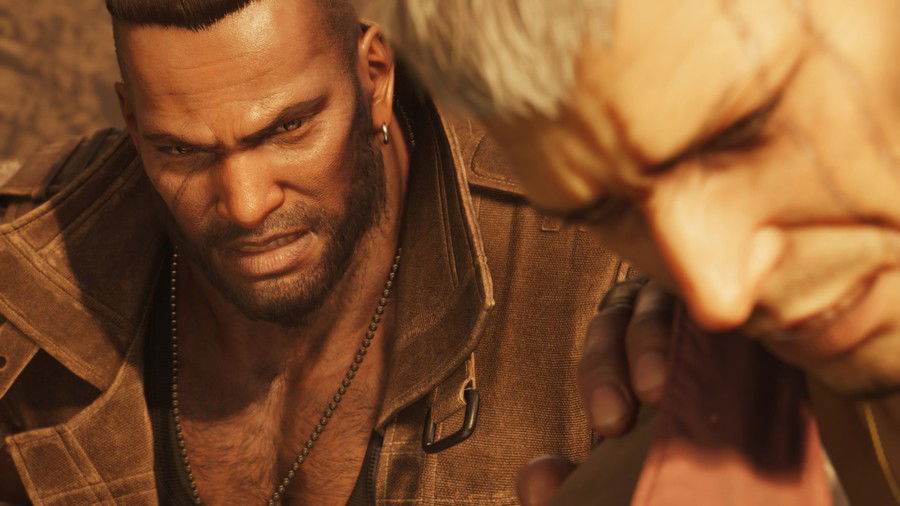
A few months ago, I wrote a review of Final Fantasy VII Rebirth, and in it, I commented on the way in which they use the immersion of a video game with the interlocutor to sink them in the feelings of the heroes during the journey - and a specific character where this happens a lot and, at the same time, hit the public's hearts hard was with Barret, the only black character on the team.
His development has been notable since the Remake, but it expands in Rebirth, as part of the chapters address his personal themes such as his traumas and his trusting relationships with others. We see him take the blame for his mistakes, reflect on them, relive his losses and mature in the process - it is from him that the game's most important lessons and messages about growth in grief come from, and we see Barret emerge from the comic relief he was in 1997 for the most mature and tragic hero of the Remake in 2024, without leaving aside his lighter characteristics, all of which made him my favorite FFVII character.
So what lessons can Yasuke bring us? What visions of the world around us or our history can we see through your perspective, and what messages will Shadows seek to convey with him? The narrative potential of having a real, black character of this magnitude can bring countless possibilities and set many precedents for Assassin’s Creed, so why not listen? Why not learn from him? Why not learn with him?
From a marketing perspective, Yasuke is almost perfect
“New Assassin's Creed has its first real person as a playable character: a black samurai” draws attention inside and outside the gaming debate - and it's been years since we've had a game from the series breaking the walls and reaching fans of other media and, also, reaching those who defend more representation in fiction.
Yasuke is also not just any figure and has appeared in other media, such as a successful animation on Netflix, in addition to being admired by the Japanese public and having works of fiction featuring him in the East. The cultural disagreements surrounding his presence as the protagonist of a game set in feudal Japan are almost unimaginable away from social media discussions: for practical purposes, the first black samurai in history is an iconic figure in pop culture and one of whom, for the most part, people will be happy to see.
The “controversy” around the character is good for Ubisoft. The positive marketing surrounding the game, the mass promotion of it, and the insignificance of frivolous debates about a samurai's ethnicity only generate more content and engagement for Assassin's Creed on multiple platforms, which will lead even some players who have already lost faith in the series to recover some of it and play the next title, as well as encouraging those who have never given the franchise a chance to try AC Shadows.
There are still many shadows to discover
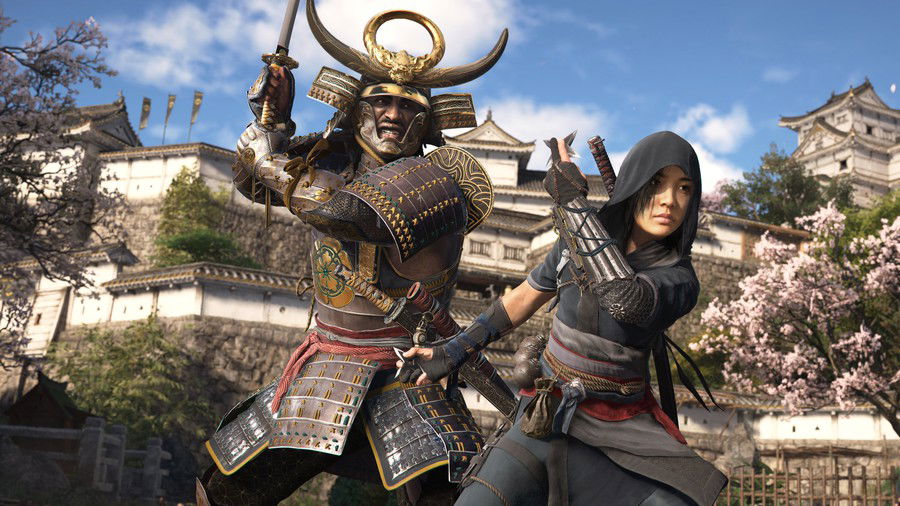
Outside social media, there are still numerous things we need to know about Assassin's Creed Shadows before we consider whether it's worth buying. There is a lack of gameplay trailers, more details about the story, videos that can demonstrate its visual and narrative quality, among other points that, naturally, are part of Ubisoft's work to promote it.
It's still too early to draw conclusions about the new game in the series, but we can be sure that, along with Naoe, Yasuke will certainly leave a mark on the Assassin's Creed fandom and set new precedents for where the journey through the ages can take us.
Thanks for reading!







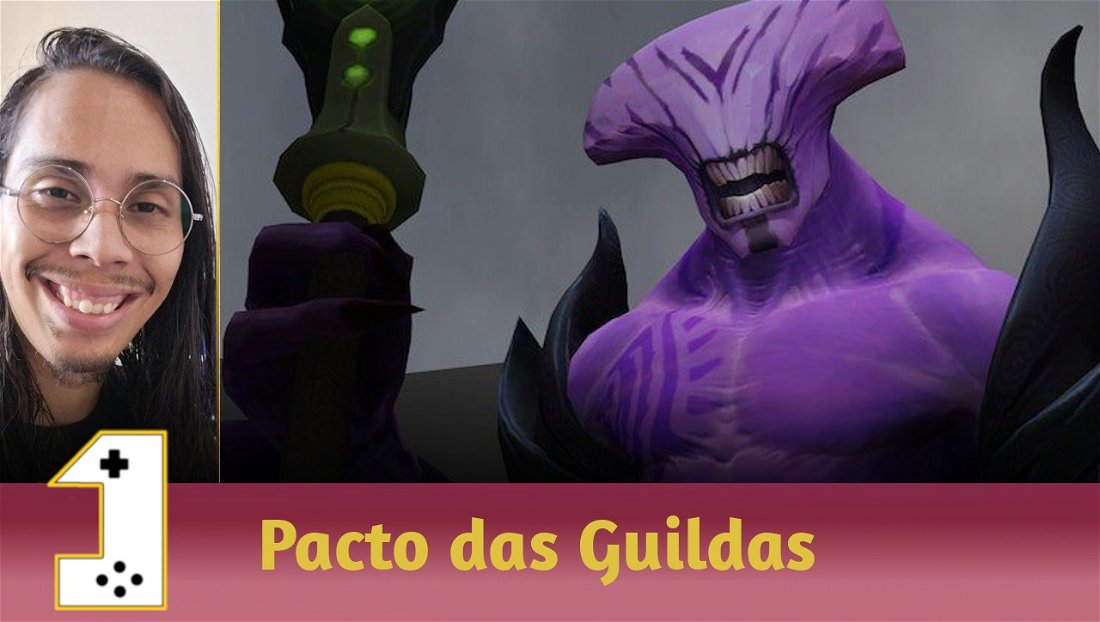




— Comentarios 0
, Reacciones 1
Se el primero en comentar